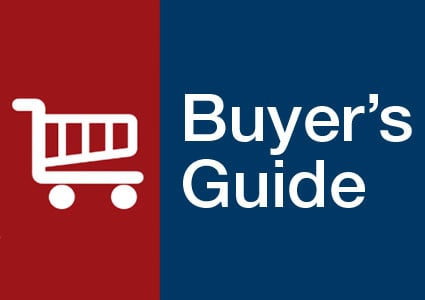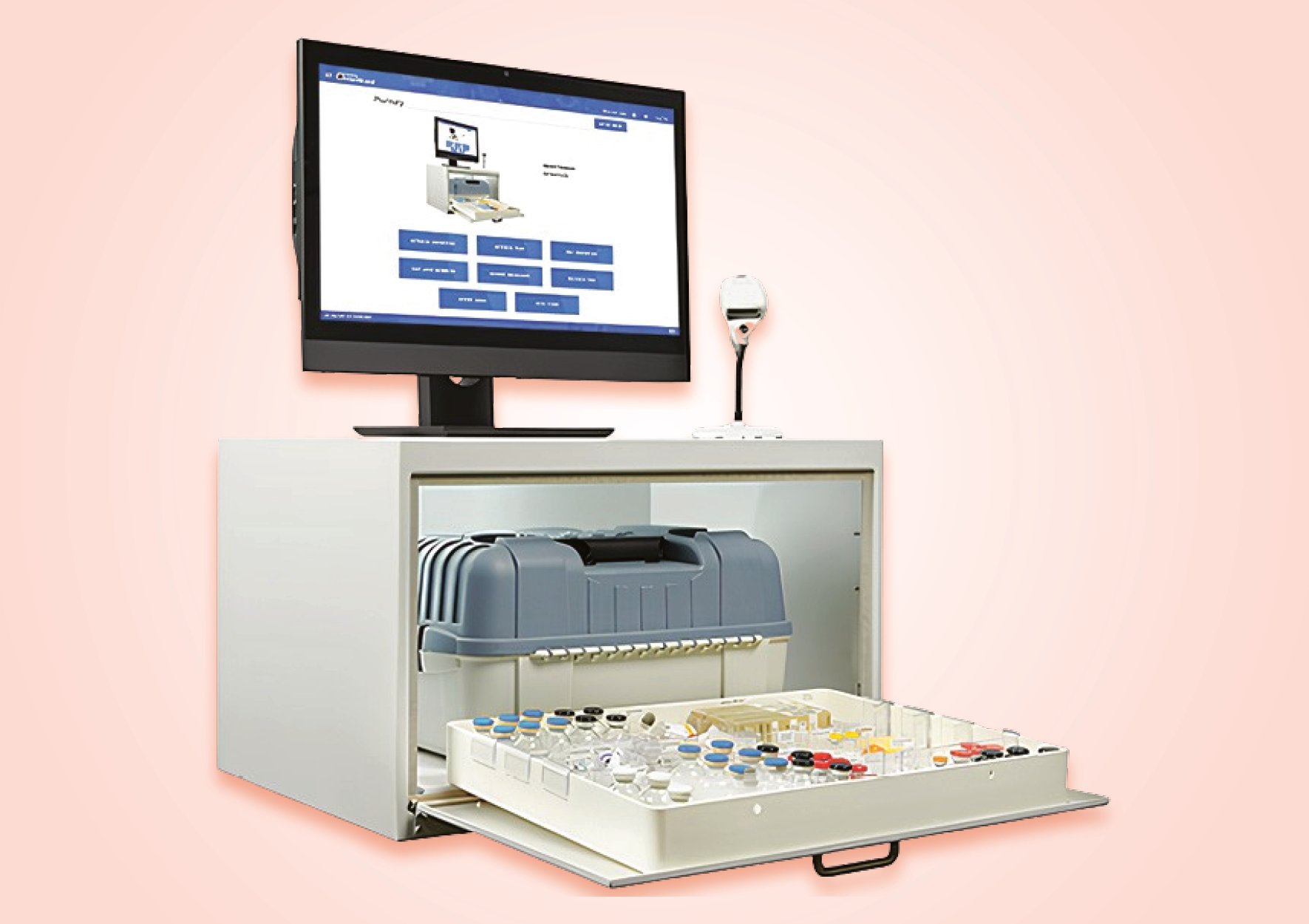- Show Menu
- Contact Us
- FAQs
- Reader Service
- Survey Data
- Survey Winners
- Testimonials
- Upcoming Events
- Webinars
- White Papers
Evaluating Bedside Medication Administration Vendors: KLAS Research Report Provides Guidance
THE USE OF TECHNOLOGY IN MEDICATION ADMINISTRATION IS GAINING increasing momentum as hospitals seek to increase both efficiency and patient safety. As regulatory pressure mounts, more health-system pharmacists are faced with the daunting task of evaluating and choosing the best product for their systems. Since the consequences of installing a cumbersome or inappropriate system are significant, a high degree of due diligence is crucial before committing to a vendor.
KLAS, a research and consulting firm specializing in measuring vendor performance in health-care information technology (HIT), has recently issued a specialty report that provides guidance in evaluating the leading vendors in medication administration systems. These are systems that provide point-of-care medication safety by using bar-code technology to support closed-loop medication administration and the “five rights” (the right patient receiving the right dose in the right amount at the right time via the right route). Medication Administration—Bedside Study (October 2004) is a timely resource for hospitals seeking to adopt bar-code technology at the bedside. The report is an in-depth review that compares the strengths and weaknesses of three leading vendor products, and features information on 14 other vendors.
KLAS has been a respected name in the health care industry since 1996, and maintains a dynamic database using a broad range of opinions from health-care professionals in over 4,500 facilities. Safeguarding its independence from any particular vendor, consultant, or investment firm is key to its credibility, and strict audit control measures and specific checks and balances are in place when measuring vendor performance. Candid data is collected in a series of direct product/vendor evaluations completed by health-care provider organizations that cover 40 performance areas. These are followed up by in-depth, confidential interviews with IT executives and department directors completing the questionnaire. Of the 105 provider interviews conducted for this report, 40 were with pharmacy directors, and 13 with pharmacy managers. In addition to the detailed performance section, the report also includes sections covering areas such as technology assessment, win/loss information, pricing, and overviews on each vendor.
The Medication Administration report features a detailed analysis of three vendor products: Bridge Medical MedPoint, Siemens Med Administration Check (MAC), and McKesson Admin-Rx. All of these met the statistical confidence level with a minimum of 15 live installations reporting. An addendum reports information on 14 additional vendors that have not yet met these minimum standards of 15 live customer evaluations in the last 12 months, to be included in the main body of the report. KLAS notes that the number of vendors in this product category indicates strong growth in this market.
The 40 performance areas monitored for each of the three leading vendors are divided almost equally into four informational areas: product/technology indicators; service indicators (implementation and support); success indicators (expectations before and after the sale); and business indicators (covering costs, contracts, etc.). The first three performance indicator categories are measured by ratings of one through nine, where one equals poor and nine equals excellent. The 12 business indicator questions (for example, “would you recommend to a peer?” and “keeps all promises”) in the last category are answered with a yes or no.
Product/technology indicators include criteria such as the quality of product, whether it works as promoted, the quality of releases and updates, and interface services. Service indicators include ratings of the quality of training, and whether the system was implemented within budget. Success indicators cover areas such as “worth the effort” or “helps your job performance.” All of the questions used in the evaluation instrument are available on the KLAS website.
An overall performance rating is calculated from individual scores for each of the 40 performance ratings. Of a total score of 100 in these ratings, Bridge Medical MedPoint scored 88.5, Siemens Med Administration Check scored 84.9, and McKesson Admin-Rx scored 78.8.
Overall ratings for each vendor are instructive, but performance scores on individual areas are also relevant to decision-making. Each health-care system has its own unique needs, and certain aspects of technology or service may be more applicable than others. For example, Siemens, though ranked second overall, scored higher than the other two vendors on the quality of custom work. Bridge Medical MedPoint, top-ranked overall, scored very high on the percentage of positive responses on business indicators, with 100% positive response rate in several areas, such as “would you recommend to a friend/peer” and “avoids nickel-and-diming.” McKesson scored highest in “support costs as expected” (100% positive response vs 90% and 89%). Collectively, the medication administration systems performed above the KLAS HIT average, which includes all vendors and products in the KLAS database.
Win/loss commentary adds to each vendor’s product profile by analyzing the reasons a vendor is or is not selected. In this regard Bridge Medical and McKesson score high in functionality, while Siemens and McKesson score high in single vendor integration.
Some of the most telling information can be garnered from the detailed quotes provided in the report, which reveal the real-life experience of health-care professionals in their own words. Candid client commentary, both positive and negative, gives direct feedback on nine relevant categories: implementation and training; support and documentation; functionality and upgrades; technology; interfacing and integration; relationship; sales and contracting; ROI/costs; and future outlook.
Overall, all three vendors performed at or slightly above the average KLAS HIT score for positive commentary (59%).
With multiple pages of commentary, this section provides the benefit of hearing directly from industry peers who have intimate experience in working through the implementation and the practical operation of these systems. About functionality, for example, one commentator noted that “Bridge gives us very good reports that enable us to pull out prevention data and justify the cost of using a bar code system,” and another stated, “the best thing about Bridge is that they’re willing to listen to the customer and put the feedback into play.” In this area, McKesson was found to be “very responsive to user input [as] shown in the releases that contain enhancements as requested by the end users,” and Siemens’ “reporting capabilities [were found to be] extremely robust,” and the system “easy to use and easy to learn.” Equally instructive, however, are cautionary comments about individual products, which may, at the very least, allow a buyer to ask pointed questions of each vendor.
Addendum
Acknowledging the rapid growth of the medication administration market, the KLAS report is accompanied by an addendum that includes overviews on 14 other vendors in this area: AMTSystems PatientSafe, Baxter Patient Care System, Cardinal Health Pyxis Veri5, Care Fusion wCareMed, Cerner PowerPOC, Eclipsys Knowledge-Based Medication Administration, GE Centricity Admin in Motion, IntelliDOT, MDG Medical Corporation, MEDITECH BMV, Mediware, Misys, Omnicell SafetyMed, and QuadraMed PC Affinity Med Charting.
The overview provides each addendum-reported vendor the opportunity to report on areas such as product history, move forward strategies, and HIPAA compliance strategies. In addition, when available, KLAS will provide performance ratings, client commentary detail, special questions results, technical assessment, and pricing information for these vendors.
These vendor products are not included in the main report, because they have not yet met the minimum KLAS standards for statistical confidence, reporting and having validated fewer than 15 installed systems at the time of the submission deadline. However, these vendors have a growing presence in the market.
Some of these vendors are rapidly advancing in the field, and products in the addendum should also be part of any diligent search, especially since they may offer features that address your organization’s needs. The methodologies employed by KLAS are useful to keep in mind, not only when comparing the three leading vendors, but also when considering the broad range of other products available.
Conclusion
Medication administration systems are a growing class of products. Technology is rapidly advancing, and at the same time there is increased pressure to implement systems to comply with regulations and demands for better patient safety. Yet given the differences in size, needs, staffing, and existing technology among institutions, there are no easy decisions. Health-system professionals with little time and resources to perform extensive independent research can benefit from the data and analysis in the KLAS Specialty Report. The detailed analysis of the three leading vendors, Bridge Medical MedPoint, Siemens Med Administration Check (MAC), and McKesson Admin-Rx, as well as the overviews provided for the many other vendors in the field, provide a means to evaluate the best choices for your system.
This summary of the KLAS Specialty Report was prepared by PP&P staff writer Deborah Lyons.
Like what you've read? Please log in or create a free account to enjoy more of what www.pppmag.com has to offer.








